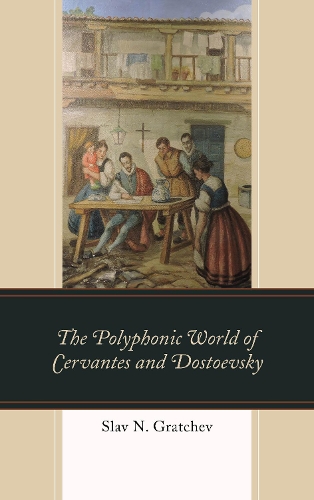
The Polyphonic World of Cervantes and Dostoevsky
(Hardback)
Publishing Details
The Polyphonic World of Cervantes and Dostoevsky
By (Author) Slav N. Gratchev
Bloomsbury Publishing PLC
Lexington Books
6th December 2017
United States
Classifications
Professional and Scholarly
Non Fiction
863.3
Physical Properties
Hardback
162
Width 160mm, Height 236mm, Spine 19mm
386g
Description
This book is the first scholarly attempt to examine Don Quixote from the angle of dialogism and polyphony. To begin with, although Mikhail Bakhtin considered Dostoevsky the creator of a polyphonic novel, we believe that the first elements of polyphony can be observed in Cervantes Don Quixote. A preliminary objective will therefore be to articulate, without reducing the role of Dostoevsky in the creation of the polyphonic novel and relying on Bakhtins interpretation of polyphony, heteroglossia, and multivoicedness, that the polyphonic structure appeared and evolved to a state of relative maturity centuries before Dostoevsky. The book will subsequently explore how and why the polyphonic structure was born within the classic monophonic structure of Don Quixote, the ways in which this new structure positioned itself in relation to the classic monophonic one, and what relations it may be said to have established with it resulting in a unique amalgamthe hybrid semi-polyphonic novel. An overarching concern throughout the project will be to trace Cervantes search for new and more sophisticated expressive possibilities that the old, monophonic narration could not offer, while also shedding light on how Cervantes systematically and deliberately employed polyphonic structure in Don Quixote.
Author Bio
Slav N. Gratchev is associate professor of Spanish at Marshall University.
